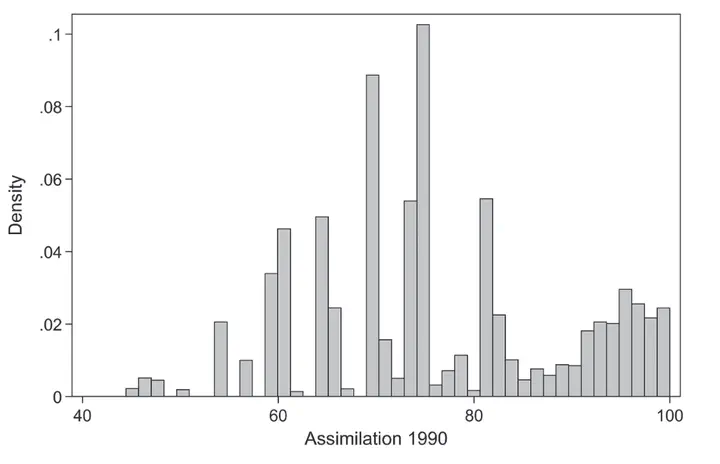
Abstract
Diaspora networks provide information to future migrants, which affects their success in the host country. While the existing literature explains the effect of networks on the outcomes of migrants through the size of the migrant community, we show that the quality of the network is an equally important determinant. We argue that networks that are more integrated in the society of the host country can provide more accurate information to future migrants about job prospects. In a decision model with imperfect signalling, we show that migrants with access to a better network are more likely to make the right decision, that is, they migrate only if they gain. We test these predictions empirically using data on recent Mexican migrants to the United States. To instrument for the quality of networks, we exploit the settlement of immigrants who came during the Bracero program in the 1950s. The results are consistent with the model predictions, providing evidence that connections to a better integrated network lead to better outcomes after migration.